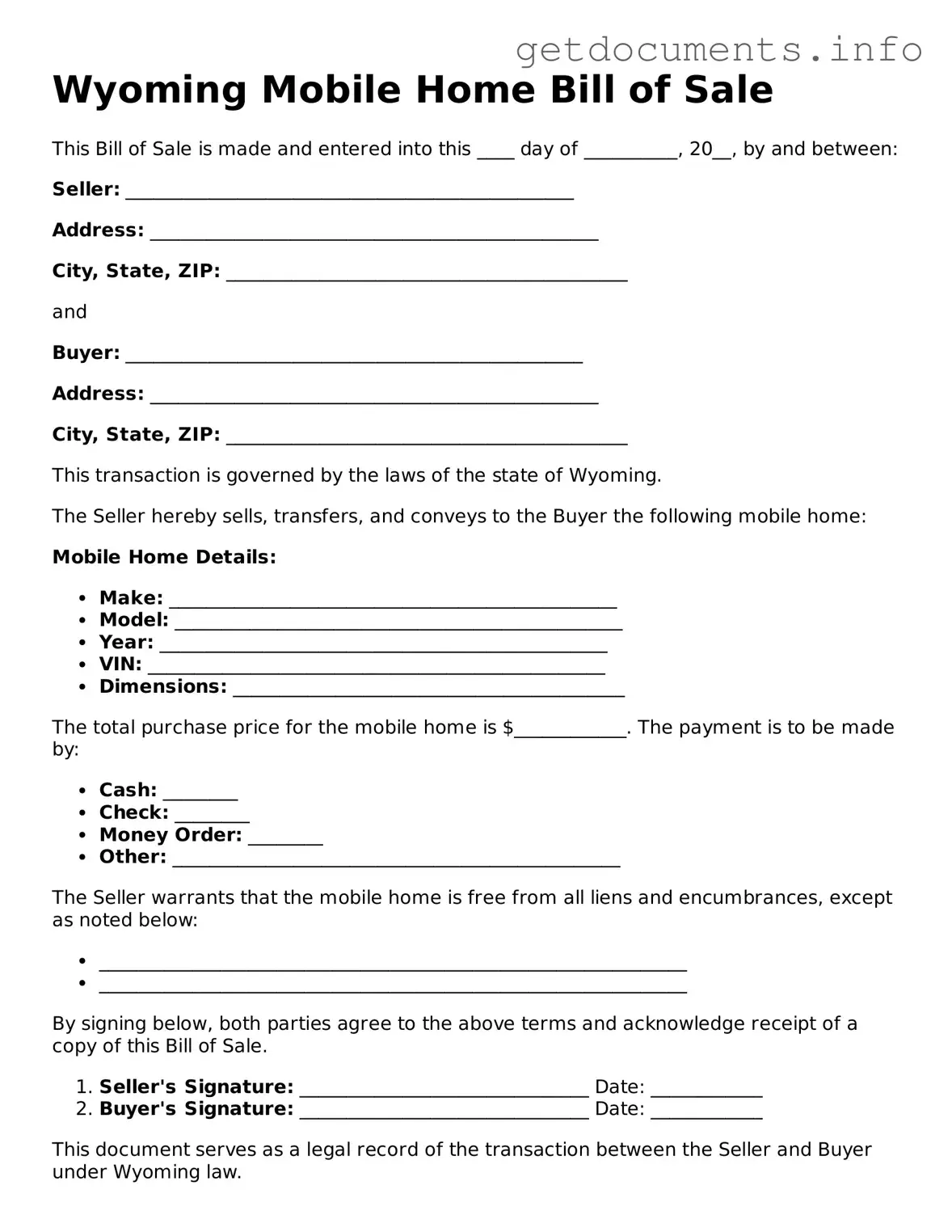Free Mobile Home Bill of Sale Template for Wyoming
The Wyoming Mobile Home Bill of Sale is a legal document used to transfer ownership of a mobile home from one party to another. This form not only serves as proof of sale but also provides essential details about the mobile home, such as its make, model, and identification number. Understanding this form is crucial for both buyers and sellers to ensure a smooth transaction.
Ready to take the next step? Fill out the form by clicking the button below.
Access Mobile Home Bill of Sale Editor

Free Mobile Home Bill of Sale Template for Wyoming
Access Mobile Home Bill of Sale Editor
Got places to be? Complete the form fast
Fill out Mobile Home Bill of Sale online and avoid printing or scanning.
Access Mobile Home Bill of Sale Editor
or
⇩ PDF File
